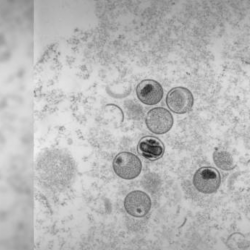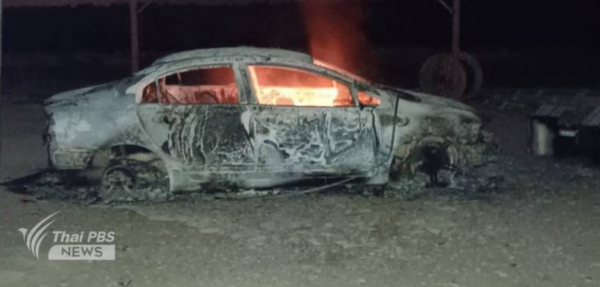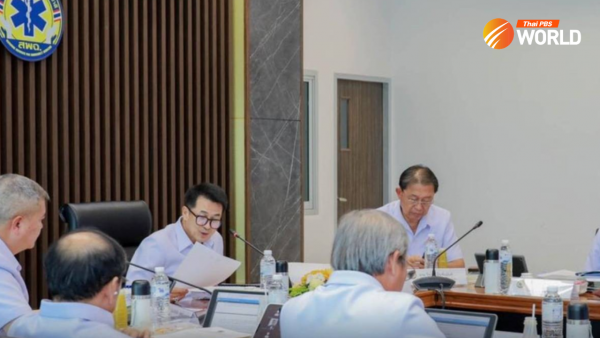‘Sentinel surveillance’ and Thailand’s defence against monkeypox

Thailand has raised its surveillance of monkeypox to “sentinel” level in response to its first local case and the World Health Organization (WHO)’s declaration of a global public health emergency.
“We have added sentinel surveillance – or monitoring of specific population groups or areas – to boost public confidence,” explained Professor Dr. Somwang Danchaiwijit, chair of the academic committee on communicable disease response.
While the Public Health Ministry has decided not to upgrade monkeypox to the status of a serious communicable disease, it has stepped up monitoring for new cases.
What will Thailand do?
As part of sentinel surveillance, authorities say they will keep a close watch on foreign arrivals and LGBTQI+ communities. So far, cases have been reported in more than 70 countries, with men who have sex with men considered to be the community at highest risk.
Monkeypox virus spreads in humans through close contact with infected people or animals, and exposure to clothing or bedding of patients with rashes. Many people have caught it through sexual activity.
Thai authorities will investigate any case in which patients develop monkeypox-like symptoms such as fever, headache, swelling, aching muscles and exhaustion, and typically itchy rash and lesions.
Specimens will be collected from these patients for lab tests. If they test positive for monkeypox, they will be quarantined for 21 days.
Despite these rules, Thailand’s first confirmed monkeypox patient – a 27-year-old Nigerian who had arrived in the country late last year – fled Phuket after testing positive on July 19. He was tracked down in Cambodia a few days later and is being treated at a hospital in Phnom Penh.
The Public Health Ministry has so far traced 33 people who had contact with the Nigerian patient. All tested negative for monkeypox but are now under a 21-day quarantine, with officials assigned to phone them on a weekly basis. The ministry has not announced whether those who fail to obey quarantine requirements will be punished.
After 21 days, quarantined individuals will be tested again to ensure they are free from monkeypox.
Suitable private labs to be allowed to test for monkeypox, no new case yet
Advice for locals
There is a high possibility that the Nigerian patient caught monkeypox while in Thailand, given he arrived in the country months ago. Yet, Thai authorities are playing down concerns that this contagious disease will spread widely.
“The confirmed case in Thailand is a West Africa [A2] strain, which is not virulent. Also, there is just one case here,” said Dr. Chakkarat Pittayawonganon, chief of the Epidemiology Bureau.
He added that Thailand’s approach to the monkeypox threat was appropriate for now, with the Public Health Ministry also assigned as the Emergency Operations Center for monkeypox control.
“You can have full confidence that we have proper and strict measures in place,” he said.
Dr. Chakkarat also suggested that people could easily protect themselves from monkeypox by wearing face masks, maintaining physical distance from others, avoiding crowded places, and washing their hands frequently.
Dr. Chalermchai Boonyaleepun, vice chair of the Senate committee on public health, said avoiding sexual activity with sex workers and multiple partners would also lower the risk, since more than 90 percent of people who became infected had had sex with confirmed monkeypox cases.
“If possible, avoid direct physical contact with people who are not from your household,” Chalermchai said. He also cautioned against sharing personal items with others.
In addition, he suggested that people should try not to touch their eyes, nose, and mouth with their hands as they might have been unintentionally contaminated.
Chalermchai also recommended that people not touch imported animals, especially rodents, which can be carriers.
Good news?
Monkeypox does not spread easily like COVID-19. Although it can spread via exposure to infected droplets, monkeypox is not thought to spread through the air like the new coronavirus.
Moreover, people who have already been vaccinated against smallpox should have solid protection against monkeypox. Most Thais born before 1974 were given this vaccine.
Meanwhile, the majority of monkeypox patients recover without needing treatment. While the disease can cause death in severe cases, the fatality rate is low. According to WHO, of more than 16,000 reported monkeypox cases this year, only five deaths were recorded. All the fatalities occurred in Africa.
By Thai PBS World’s General Desk






